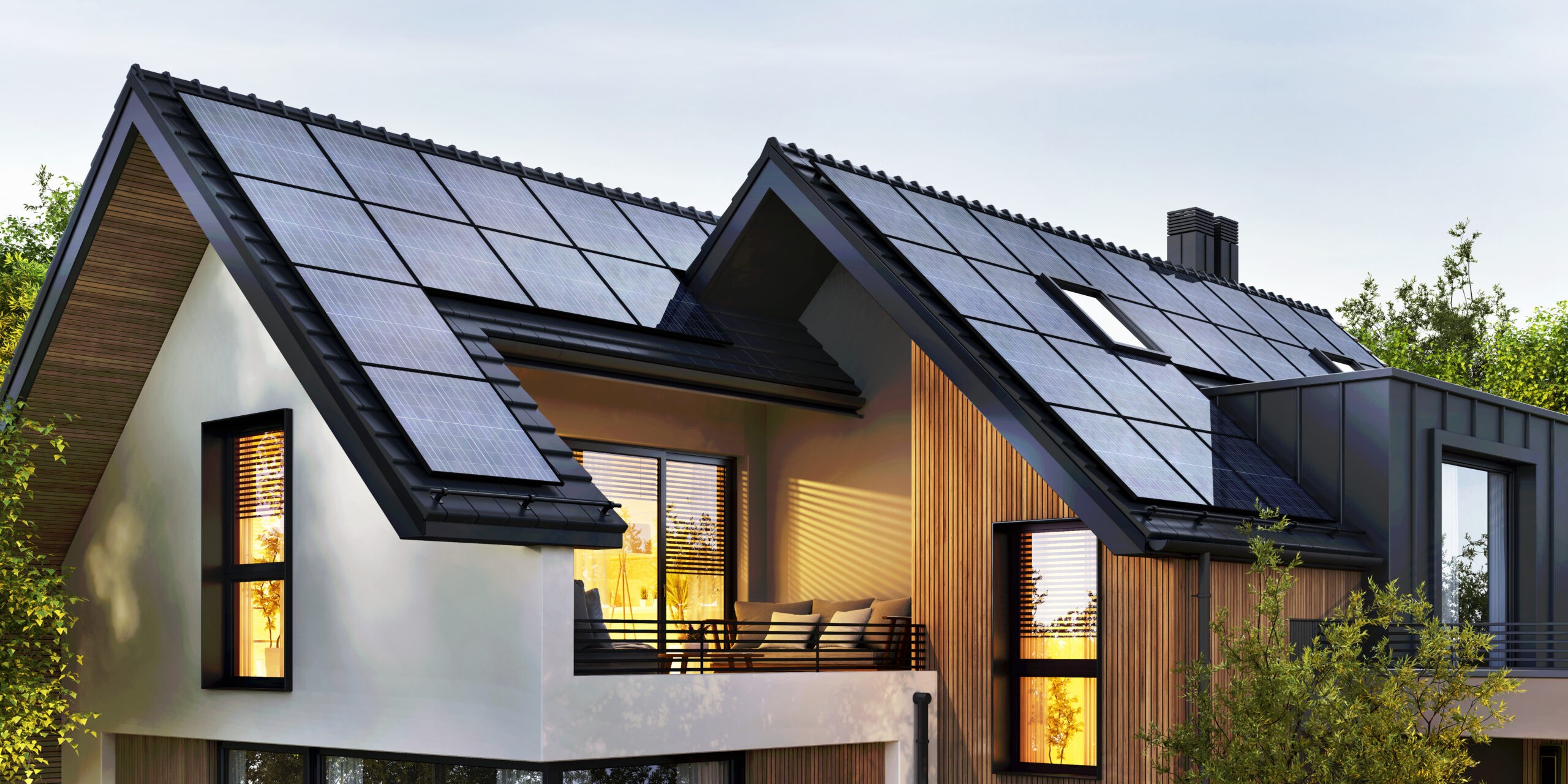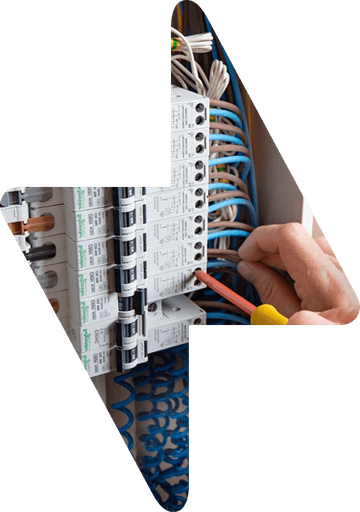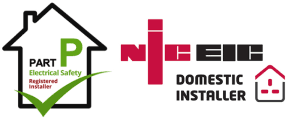Domestic
Solar & Battery

What is solar battery
Solar battery storage, also known as battery energy storage systems (BESS), is a technology that allows you to store surplus energy generated by your home's photovoltaic (PV) solar panels. These systems generally consist of scalable, rechargeable batteries paired with a battery management system (BMS) for efficient monitoring and control.
What is solar battery
Solar battery storage, also known as battery energy storage systems (BESS), is a technology that allows you to store surplus energy generated by your home's photovoltaic (PV) solar panels. These systems generally consist of scalable, rechargeable batteries paired with a battery management system (BMS) for efficient monitoring and control.
What is solar battery
Solar battery storage, also known as battery energy storage systems (BESS), is a technology that allows you to store surplus energy generated by your home's photovoltaic (PV) solar panels. These systems generally consist of scalable, rechargeable batteries paired with a battery management system (BMS) for efficient monitoring and control.
What is solar battery
Solar battery storage, also known as battery energy storage systems (BESS), is a technology that allows you to store surplus energy generated by your home's photovoltaic (PV) solar panels. These systems generally consist of scalable, rechargeable batteries paired with a battery management system (BMS) for efficient monitoring and control.
How does solar battery storage work
Solar battery storage systems keep track of your home's electricity usage patterns. By analyzing this data, the system intelligently manages energy flow, deciding the best times to charge the battery and when to use the stored energy based on your household's energy needs.
How does solar battery storage work
Solar battery storage systems keep track of your home's electricity usage patterns. By analyzing this data, the system intelligently manages energy flow, deciding the best times to charge the battery and when to use the stored energy based on your household's energy needs.
How does solar battery storage work
Solar battery storage systems keep track of your home's electricity usage patterns. By analyzing this data, the system intelligently manages energy flow, deciding the best times to charge the battery and when to use the stored energy based on your household's energy needs.
How does solar battery storage work
Solar battery storage systems keep track of your home's electricity usage patterns. By analyzing this data, the system intelligently manages energy flow, deciding the best times to charge the battery and when to use the stored energy based on your household's energy needs.
What are the benefits of battery storage
The advantages of solar panels extend to financial savings, independence from the National Grid, and a reduced environmental footprint. Solar panels generate electricity during daylight hours, and battery storage systems can store this energy for future use. This allows users to reduce their energy bills by using stored electricity instead of relying solely on the National Grid. Additionally, consumers can store inexpensive electricity generated by solar panels and sell it back to the grid through the Smart Export Guarantee (SEG).
A battery storage system with backup capability provides energy independence by serving as an alternative energy source. This is particularly beneficial during high-demand periods or extreme weather when the National Grid might be unstable. Such systems can store energy during normal operation and supply it to essential equipment and lighting during a power outage, ensuring a continuous power supply.
Moreover, solar power generates electricity without emitting harmful pollutants or greenhouse gases. Installing a battery storage system alongside solar panels allows excess energy to be stored for later use, reducing the need for fossil fuel-based energy generation. This positively impacts the environment and helps mitigate global warming.
What are the benefits of battery storage
The advantages of solar panels extend to financial savings, independence from the National Grid, and a reduced environmental footprint. Solar panels generate electricity during daylight hours, and battery storage systems can store this energy for future use. This allows users to reduce their energy bills by using stored electricity instead of relying solely on the National Grid. Additionally, consumers can store inexpensive electricity generated by solar panels and sell it back to the grid through the Smart Export Guarantee (SEG).
A battery storage system with backup capability provides energy independence by serving as an alternative energy source. This is particularly beneficial during high-demand periods or extreme weather when the National Grid might be unstable. Such systems can store energy during normal operation and supply it to essential equipment and lighting during a power outage, ensuring a continuous power supply.
Moreover, solar power generates electricity without emitting harmful pollutants or greenhouse gases. Installing a battery storage system alongside solar panels allows excess energy to be stored for later use, reducing the need for fossil fuel-based energy generation. This positively impacts the environment and helps mitigate global warming.
What are the benefits of battery storage
The advantages of solar panels extend to financial savings, independence from the National Grid, and a reduced environmental footprint. Solar panels generate electricity during daylight hours, and battery storage systems can store this energy for future use. This allows users to reduce their energy bills by using stored electricity instead of relying solely on the National Grid. Additionally, consumers can store inexpensive electricity generated by solar panels and sell it back to the grid through the Smart Export Guarantee (SEG).
A battery storage system with backup capability provides energy independence by serving as an alternative energy source. This is particularly beneficial during high-demand periods or extreme weather when the National Grid might be unstable. Such systems can store energy during normal operation and supply it to essential equipment and lighting during a power outage, ensuring a continuous power supply.
Moreover, solar power generates electricity without emitting harmful pollutants or greenhouse gases. Installing a battery storage system alongside solar panels allows excess energy to be stored for later use, reducing the need for fossil fuel-based energy generation. This positively impacts the environment and helps mitigate global warming.
What are the benefits of battery storage
The advantages of solar panels extend to financial savings, independence from the National Grid, and a reduced environmental footprint. Solar panels generate electricity during daylight hours, and battery storage systems can store this energy for future use. This allows users to reduce their energy bills by using stored electricity instead of relying solely on the National Grid. Additionally, consumers can store inexpensive electricity generated by solar panels and sell it back to the grid through the Smart Export Guarantee (SEG).
A battery storage system with backup capability provides energy independence by serving as an alternative energy source. This is particularly beneficial during high-demand periods or extreme weather when the National Grid might be unstable. Such systems can store energy during normal operation and supply it to essential equipment and lighting during a power outage, ensuring a continuous power supply.
Moreover, solar power generates electricity without emitting harmful pollutants or greenhouse gases. Installing a battery storage system alongside solar panels allows excess energy to be stored for later use, reducing the need for fossil fuel-based energy generation. This positively impacts the environment and helps mitigate global warming.
The difference between solar battery storage and battery back up
There are two primary types of battery technologies: battery storage and battery backup. Grid-tied solar PV systems, like those commonly offered by Powertech MK, need a connection to the grid to function and are not self-sufficient. Battery storage systems are designed to store excess solar energy for later use in the household, but they do not operate during power outages.
Conversely, battery backup systems can function independently of the grid, providing power during outages. These systems are more complex and require additional electrical preparation. They often include a gateway option—a separate box or consumer unit connected to the power supply—that allows the battery to operate without depending on grid power.
The difference between solar battery storage and battery back up
There are two primary types of battery technologies: battery storage and battery backup. Grid-tied solar PV systems, like those commonly offered by Powertech MK, need a connection to the grid to function and are not self-sufficient. Battery storage systems are designed to store excess solar energy for later use in the household, but they do not operate during power outages.
Conversely, battery backup systems can function independently of the grid, providing power during outages. These systems are more complex and require additional electrical preparation. They often include a gateway option—a separate box or consumer unit connected to the power supply—that allows the battery to operate without depending on grid power.
The difference between solar battery storage and battery back up
There are two primary types of battery technologies: battery storage and battery backup. Grid-tied solar PV systems, like those commonly offered by Powertech MK, need a connection to the grid to function and are not self-sufficient. Battery storage systems are designed to store excess solar energy for later use in the household, but they do not operate during power outages.
Conversely, battery backup systems can function independently of the grid, providing power during outages. These systems are more complex and require additional electrical preparation. They often include a gateway option—a separate box or consumer unit connected to the power supply—that allows the battery to operate without depending on grid power.
The difference between solar battery storage and battery back up
There are two primary types of battery technologies: battery storage and battery backup. Grid-tied solar PV systems, like those commonly offered by Powertech MK, need a connection to the grid to function and are not self-sufficient. Battery storage systems are designed to store excess solar energy for later use in the household, but they do not operate during power outages.
Conversely, battery backup systems can function independently of the grid, providing power during outages. These systems are more complex and require additional electrical preparation. They often include a gateway option—a separate box or consumer unit connected to the power supply—that allows the battery to operate without depending on grid power.
Different types of battery storage systems
In AC-coupled systems, solar panels generate DC (direct current) electricity, which is converted to AC (alternating current) using an inverter. The AC power can be used to run household appliances or fed back into the grid. These systems use a separate charge controller for the solar panels and the battery storage, making them ideal for those with existing domestic solar systems.
In DC-coupled systems, solar panels directly charge a battery bank with DC electricity, storing the generated power without converting it to AC first. These systems typically feature a single hybrid inverter that includes a charge controller to manage both solar PV and battery charging. This setup is usually preferred for domestic properties without an existing solar system.
Different types of battery storage systems
In AC-coupled systems, solar panels generate DC (direct current) electricity, which is converted to AC (alternating current) using an inverter. The AC power can be used to run household appliances or fed back into the grid. These systems use a separate charge controller for the solar panels and the battery storage, making them ideal for those with existing domestic solar systems.
In DC-coupled systems, solar panels directly charge a battery bank with DC electricity, storing the generated power without converting it to AC first. These systems typically feature a single hybrid inverter that includes a charge controller to manage both solar PV and battery charging. This setup is usually preferred for domestic properties without an existing solar system.
Different types of battery storage systems
In AC-coupled systems, solar panels generate DC (direct current) electricity, which is converted to AC (alternating current) using an inverter. The AC power can be used to run household appliances or fed back into the grid. These systems use a separate charge controller for the solar panels and the battery storage, making them ideal for those with existing domestic solar systems.
In DC-coupled systems, solar panels directly charge a battery bank with DC electricity, storing the generated power without converting it to AC first. These systems typically feature a single hybrid inverter that includes a charge controller to manage both solar PV and battery charging. This setup is usually preferred for domestic properties without an existing solar system.
Different types of battery storage systems
In AC-coupled systems, solar panels generate DC (direct current) electricity, which is converted to AC (alternating current) using an inverter. The AC power can be used to run household appliances or fed back into the grid. These systems use a separate charge controller for the solar panels and the battery storage, making them ideal for those with existing domestic solar systems.
In DC-coupled systems, solar panels directly charge a battery bank with DC electricity, storing the generated power without converting it to AC first. These systems typically feature a single hybrid inverter that includes a charge controller to manage both solar PV and battery charging. This setup is usually preferred for domestic properties without an existing solar system.
How much solar battery storage do I need
The amount of solar battery storage you need depends on your energy consumption, the size of your solar panel system, and your goals for energy independence. Typically, a household might require a battery capacity of 4-9 kWh to cover evening use. Our solar experts will evaluate the amount of solar energy your PV system generates and your annual electricity usage when preparing your quote.
How much solar battery storage do I need
The amount of solar battery storage you need depends on your energy consumption, the size of your solar panel system, and your goals for energy independence. Typically, a household might require a battery capacity of 4-9 kWh to cover evening use. Our solar experts will evaluate the amount of solar energy your PV system generates and your annual electricity usage when preparing your quote.
How much solar battery storage do I need
The amount of solar battery storage you need depends on your energy consumption, the size of your solar panel system, and your goals for energy independence. Typically, a household might require a battery capacity of 4-9 kWh to cover evening use. Our solar experts will evaluate the amount of solar energy your PV system generates and your annual electricity usage when preparing your quote.
How much solar battery storage do I need
The amount of solar battery storage you need depends on your energy consumption, the size of your solar panel system, and your goals for energy independence. Typically, a household might require a battery capacity of 4-9 kWh to cover evening use. Our solar experts will evaluate the amount of solar energy your PV system generates and your annual electricity usage when preparing your quote.
Different types of battery storage systems
In AC-coupled systems, solar panels generate DC (direct current) electricity, which is converted to AC (alternating current) using an inverter. The AC power can be used to run household appliances or fed back into the grid. These systems use a separate charge controller for the solar panels and the battery storage, making them ideal for those with existing domestic solar systems.
In DC-coupled systems, solar panels directly charge a battery bank with DC electricity, storing the generated power without converting it to AC first. These systems typically feature a single hybrid inverter that includes a charge controller to manage both solar PV and battery charging. This setup is usually preferred for domestic properties without an existing solar system.
Different types of battery storage systems
In AC-coupled systems, solar panels generate DC (direct current) electricity, which is converted to AC (alternating current) using an inverter. The AC power can be used to run household appliances or fed back into the grid. These systems use a separate charge controller for the solar panels and the battery storage, making them ideal for those with existing domestic solar systems.
In DC-coupled systems, solar panels directly charge a battery bank with DC electricity, storing the generated power without converting it to AC first. These systems typically feature a single hybrid inverter that includes a charge controller to manage both solar PV and battery charging. This setup is usually preferred for domestic properties without an existing solar system.
Different types of battery storage systems
In AC-coupled systems, solar panels generate DC (direct current) electricity, which is converted to AC (alternating current) using an inverter. The AC power can be used to run household appliances or fed back into the grid. These systems use a separate charge controller for the solar panels and the battery storage, making them ideal for those with existing domestic solar systems.
In DC-coupled systems, solar panels directly charge a battery bank with DC electricity, storing the generated power without converting it to AC first. These systems typically feature a single hybrid inverter that includes a charge controller to manage both solar PV and battery charging. This setup is usually preferred for domestic properties without an existing solar system.
Different types of battery storage systems
In AC-coupled systems, solar panels generate DC (direct current) electricity, which is converted to AC (alternating current) using an inverter. The AC power can be used to run household appliances or fed back into the grid. These systems use a separate charge controller for the solar panels and the battery storage, making them ideal for those with existing domestic solar systems.
In DC-coupled systems, solar panels directly charge a battery bank with DC electricity, storing the generated power without converting it to AC first. These systems typically feature a single hybrid inverter that includes a charge controller to manage both solar PV and battery charging. This setup is usually preferred for domestic properties without an existing solar system.
How long does solar battery storage last
Solar batteries typically come with warranties ranging from 5 to 10 years, which can vary based on the type of battery and the manufacturer. The lifespan of the battery is also influenced by usage patterns. Lithium-ion batteries are known for their deeper depth of discharge, typically ranging from 80% to 100%, and they generally have a longer lifespan compared to other types of batteries.
How long does solar battery storage last
Solar batteries typically come with warranties ranging from 5 to 10 years, which can vary based on the type of battery and the manufacturer. The lifespan of the battery is also influenced by usage patterns. Lithium-ion batteries are known for their deeper depth of discharge, typically ranging from 80% to 100%, and they generally have a longer lifespan compared to other types of batteries.
How long does solar battery storage last
Solar batteries typically come with warranties ranging from 5 to 10 years, which can vary based on the type of battery and the manufacturer. The lifespan of the battery is also influenced by usage patterns. Lithium-ion batteries are known for their deeper depth of discharge, typically ranging from 80% to 100%, and they generally have a longer lifespan compared to other types of batteries.
How long does solar battery storage last
Solar batteries typically come with warranties ranging from 5 to 10 years, which can vary based on the type of battery and the manufacturer. The lifespan of the battery is also influenced by usage patterns. Lithium-ion batteries are known for their deeper depth of discharge, typically ranging from 80% to 100%, and they generally have a longer lifespan compared to other types of batteries.
Book Us For The Job
Contact Us
Don't hesitate to reach out to us today!

Top Services
Our Contacts
©Powertech MK. All Rights Reserved 2024.
Don't hesitate to reach out to us today!
Top Services
Our Contacts
©Powertech MK. All Rights Reserved 2024.
Don't hesitate to reach out to us today!
Top Services
Our Contacts
©Powertech MK. All Rights Reserved 2024.







